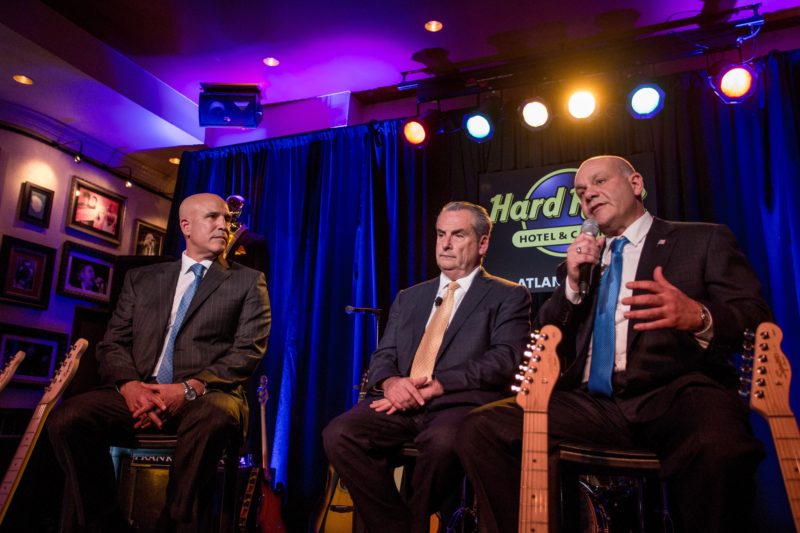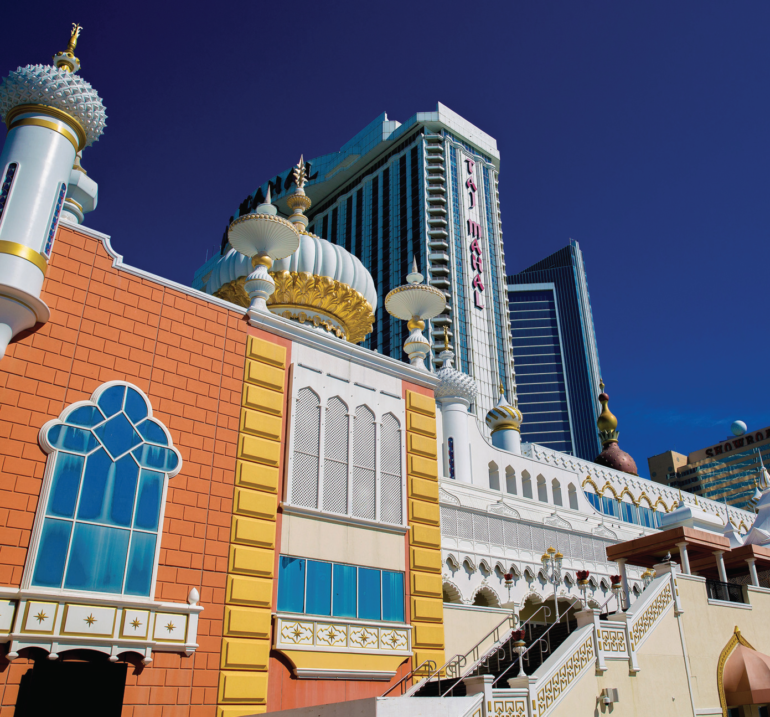The former Trump Taj Mahal is slated to become a new Hard Rock Hotel & Casino under a nearly $400 million renovation that is planned for the iconic property. — Courtesy: Hard Rock International
By Joshua Burd
A reshaped casino industry and the promise of a nongaming economy are no doubt driving new activity in Atlantic City, but the resort is still grappling with a cash-strapped local government.
If you ask some of its newest investors, the city is at least on the path toward a solution after a recent state takeover of the municipality.
“It gave the financial world a much more comfortable feeling for Atlantic City once they had the backing of the state of New Jersey,” said Jack Morris, one of the partners in the new Hard Rock Hotel & Casino. “The financial crisis that the city was in has made it difficult, but it’s not only about the money we’ve invested. To continue investing in Atlantic, fortunately or unfortunately, you still need to borrow money, and to see other buildings bought, rehabbed or rebuilt, you need that confidence from the financial community.
“This will give the financial community the confidence it needs.”
RELATED: Riding high from new investment, Atlantic City is charting a new future
Morris, the CEO of Edgewood Properties, spoke in early April as Hard Rock unveiled its nearly $400 million plan to transform the former Trump Taj Mahal. He has partnered with Hard Rock and longtime friend Joe Jingoli to acquire and redevelop the landmark property, in another sign of confidence in the resort town.

The project will reintroduce a casino to a market that saw five gaming halls close between 2014 and late last year, amid a precipitous decline in revenue and increased competition from neighboring states. But Jim Allen, CEO of Hard Rock International, said it was important to remember that the city is still the second-largest gaming market in the U.S. and that all of the remaining operators are profitable.
“It’s very, very disappointing that so many people were affected, but the reality is that the market has rightsized itself,” Allen said, adding that “my personal belief is that did not need to occur.” He noted that Las Vegas “went through the identical situation,” but said some of those operators were able to weather the storm because of their investments in overseas casinos. “But if you look at the challenge of the companies being over-levered, and then, frankly, the quality of the product starting to deteriorate, that became a challenge for Atlantic City.”
Existing casino owners in Atlantic City have since responded, Allen said, pointing to examples such as $50 million in planned investments by the Borgata and nearly $100 million in upgrades at the Tropicana.
All the while, the remaining casinos in 2016 posted the city’s first gaming revenue increase in a decade. With the help of internet gamblers, casinos won $2.6 billion last year, even if it was only a modest 1.5 percent increase from 2015 and still only half of the industry’s peak in 2006.
“I think you’re going to see more capital come back into the product,” Allen said. “Nobody in the world has the beach, the Boardwalk and the natural amenities that are here in Atlantic City.”










